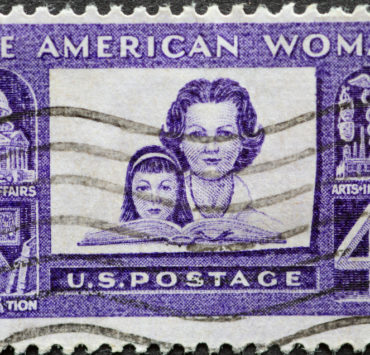Presidential Cabinet Firsts

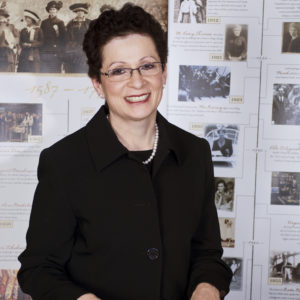
Jill S. Tietjen, PE, is an author, national speaker, and…
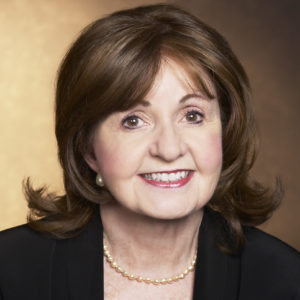
Charlotte S. Waisman, Ph.D. is a national champion and advocate…
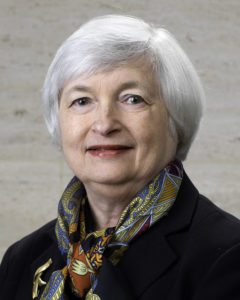
Janet Yellen became the first female Secretary of the Treasury upon her confirmation in January 2021, as part of the Biden administration. In 2014, Yellen also made “Her Story” when she was confirmed as the first female chair of the Federal Reserve. Yellen follows in the footsteps of other firsts in the cabinet. Let’s learn about a few of them.
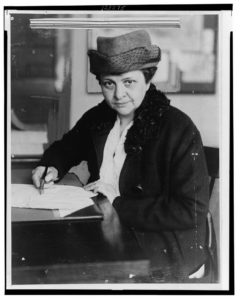
The first female to serve in the Presidential Cabinet, was President Franklin D. Roosevelt’s (FDR’s) Secretary of Labor from 1933-1945. After graduating with a degree in chemistry and physics, and unable to find a job in social work, Perkins moved to Chicago and became very active at Hull House, a settlement house for recent immigrants. Her interactions with the poor and unemployed there led her to find her life’s calling. After receiving her master’s degree in social work at Columbia University (in New York City), Perkins stayed in New York and saw the devastation and death caused by poor labor conditions at the 1911 Triangle Shirtwaist Fire. A political appointee in New York State while FDR was governor, she was appointed to his Cabinet where she oversaw the establishment of the Social Security Administration. Perkins, who has been inducted into the National Women’s Hall of Fame, said “I came to Washington to work for God, FDR, and the millions of forgotten, plain common workingmen.”
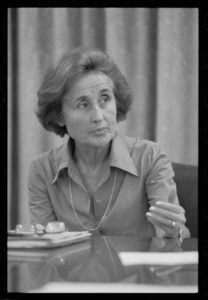
The first female Secretary of Commerce, Juanita Kreps grew up in a poor coal-mining community in Kentucky. A pioneer for women, Kreps broke many gender barriers and focused her research as a professor at Duke University on the labor demographics of women and older people. The first female director of the New York Stock Exchange, Kreps led trade missions and, as Secretary of Commerce, led the negotiations that opened trade with China. When she was named Secretary of Commerce in 1976, she openly disagreed with President Jimmy Carter when he indicated that it had been hard to find a qualified woman to fill the position. Kreps received her undergraduate degree from Brea College and both graduate degrees from Duke University.
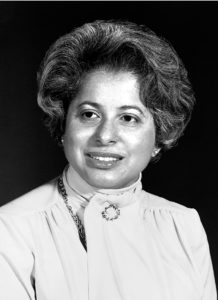
Patricia Roberts Harris was also a woman who broke many barriers. She was not only the first African-American woman to serve in the Cabinet, she was the first to serve as a U.S. Ambassador and the first to lead a law school. After Harris graduated from George Washington University Law School first in her class, she was a law professor and lecturer, and in 1965, was appointed U.S. Ambassador to Luxembourg. She then led the Law School at Howard University before practicing law privately. In 1977, President Jimmy Carter selected her as the Secretary of the Department of Housing and Urban Development. She later became Secretary of what later was called the Department of Health and Human Services. During a confirmation hearing when asked if she could relate to the clientele of the Department she would be heading, she said “Senator, I am one of them. You do not seem to understand who I am. I am a black woman, the daughter of a dining-car worker . . . If my life has any meaning at all, it is that those who start out as outcasts can wind up as being part of the system.” Harris has been inducted into the National Women’s Hall of Fame.
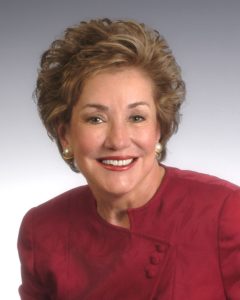
Born in Salisbury, North Carolina in 1936, Elizabeth Hanford Dole has been a U.S. Senator (North Carolina’s first female senator), Secretary of Transportation, Secretary of Labor, and head of the American Red Cross. Dole received her undergraduate degree at Duke University and her law degree from Harvard University. She worked for in the White House for many years before being named Secretary of Transportation (the first woman in this role). She was selected as Transportation Secretary by President Reagan in 1983. She later served as Secretary of Labor for President George H.W. Bush. In 2002 she was elected to the U.S. Senate representing North Carolina and served one term. During her tenure she became the first woman to chair the National Republican Senatorial Committee. Dole has been inducted into the National Women’s Hall of Fame.
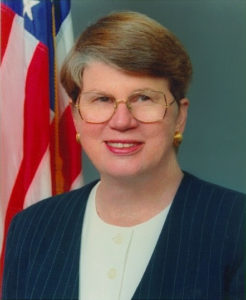
The first woman to serve as U.S. Attorney General, Janet Reno was named by President Bill Clinton in 1993. Her reputation was established during the years she spent as an attorney and country prosecutor in Florida. A graduate of Cornell University and Harvard Law School, Reno launched programs as Attorney General to keep non-violent drug offenders out of jail and to ensure that the rights of criminal defendants were honored. Reno launched an anti-trust suit against Microsoft during her 8-year tenure. She has also been inducted into the National Women’s Hall of Fame.
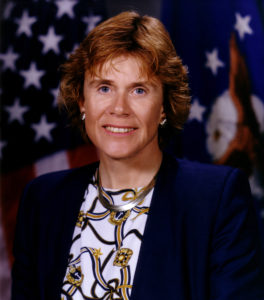
The first female Secretary of the Air Force and the first woman to lead an entire military branch in the Department of Defense, aeronautical engineer Sheila Widnall was appointed by President Bill Clinton in 1993. Widnall received all three of her degrees from MIT; she was named an Institute Professor in 1998. Her research has focused on fluid dynamics, especially in the areas of aircraft turbulence and spiraling airflows. In addition to her election to the National Academy of Engineering and numerous other awards, Widnall has been inducted into the National Women’s Hall of Fame.
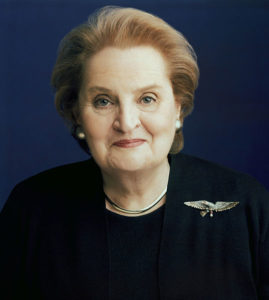
The first female Secretary of State, Madeleine Albright graduated from Wellesley College in 1959 in political science. She was able to attend as she had been given a full scholarship. After receiving her master’s and Ph.D. degrees, Albright rose through political circles in Washington, D.C. becoming congressional liaison to the National Security Council in 1978. In 1982, she began her affiliation with Georgetown University. Her return to government service occurred in 1993 when Bill Clinton named her Ambassador to the United Nations. In 1997, he named her the first female Secretary of State. Today, she consults worldwide on matters involving nations and has written a number of books. Among her many honors, Albright has been inducted into the National Women’s Hall of Fame.
Women participate and contribute to every area of our lives. These women who achieved political firsts, as well as many other women, almost all of whom we have not heard about nor learned about in school, are profiled in our book, Her Story: A Timeline of the Women Who Changed America. Help us by continuing to tell women’s stories. Write women back into history! Tell young women especially, that their dreams in any field of endeavor or interest, can become a reality.
Author: Jill Tietjen
Jill S. Tietjen, PE, is an author, national speaker, and an electrical engineer. After 40 years in the electric utility industry, her professional focus is now on women’s advocacy, worldwide. She blogs for The Huffington Post, speaks nationally on the accomplishments of women, nominates women for awards, and continues to write books (8 published to date), following in the footsteps of her bestselling and award-winning book, Her Story: A Timeline of the Women Who Changed America (written with Charlotte Waisman). She is a frequent keynote speaker as her positive energy and her ability to relate to the audience result in inspired and energized listeners. The recipient of many awards, her induction into the Colorado Women’s Hall of Fame in 2010 remains one of her most treasured.

Jill S. Tietjen, PE, is an author, national speaker, and an electrical engineer. After 40 years in the electric utility industry, her professional focus is now on women’s advocacy, worldwide. She blogs for The Huffington Post, speaks nationally on the accomplishments of women, nominates women for awards, and continues to write books (8 published to date), following in the footsteps of her bestselling and award-winning book, Her Story: A Timeline of the Women Who Changed America (written with Charlotte Waisman). She is a frequent keynote speaker as her positive energy and her ability to relate to the audience result in inspired and energized listeners. The recipient of many awards, her induction into the Colorado Women’s Hall of Fame in 2010 remains one of her most treasured.

Charlotte S. Waisman, Ph.D. is a national champion and advocate for women as a professor and keynote speaker. A corporate leader, executive coach, and facilitator, she conducts leadership workshops nationally.



